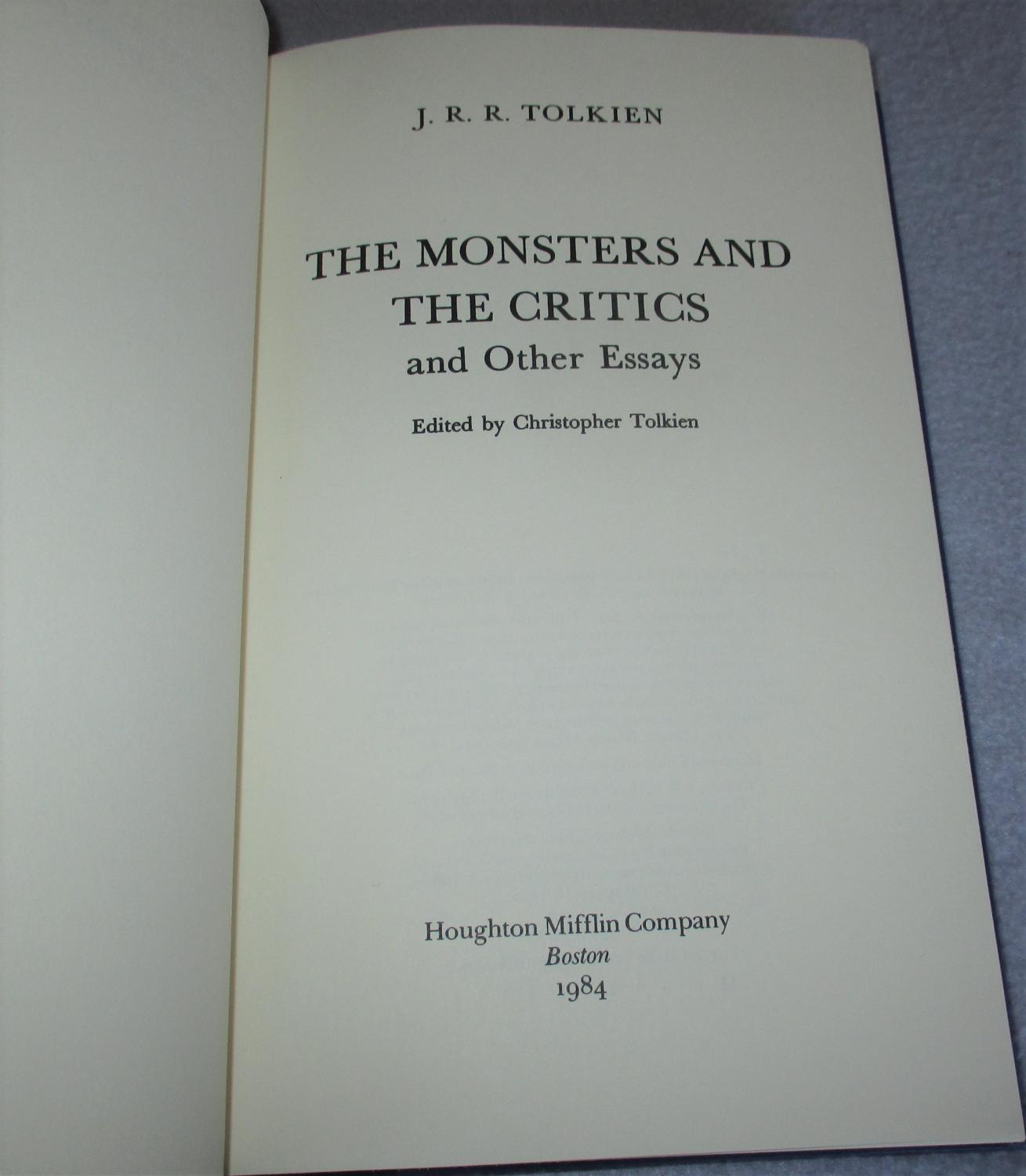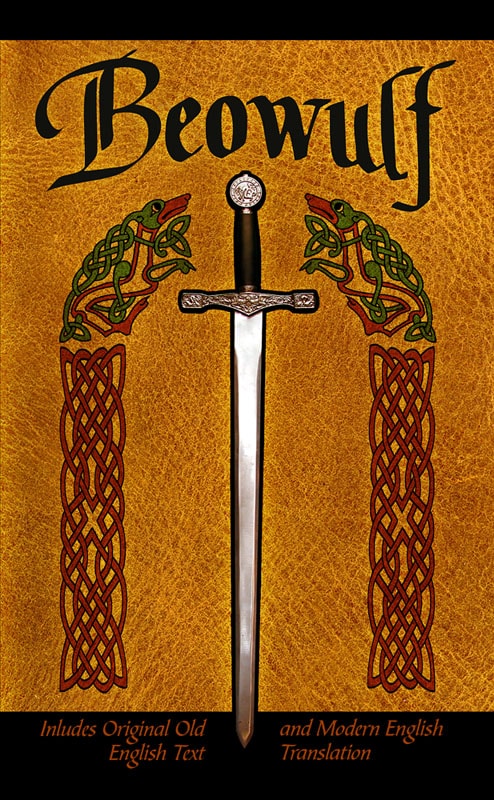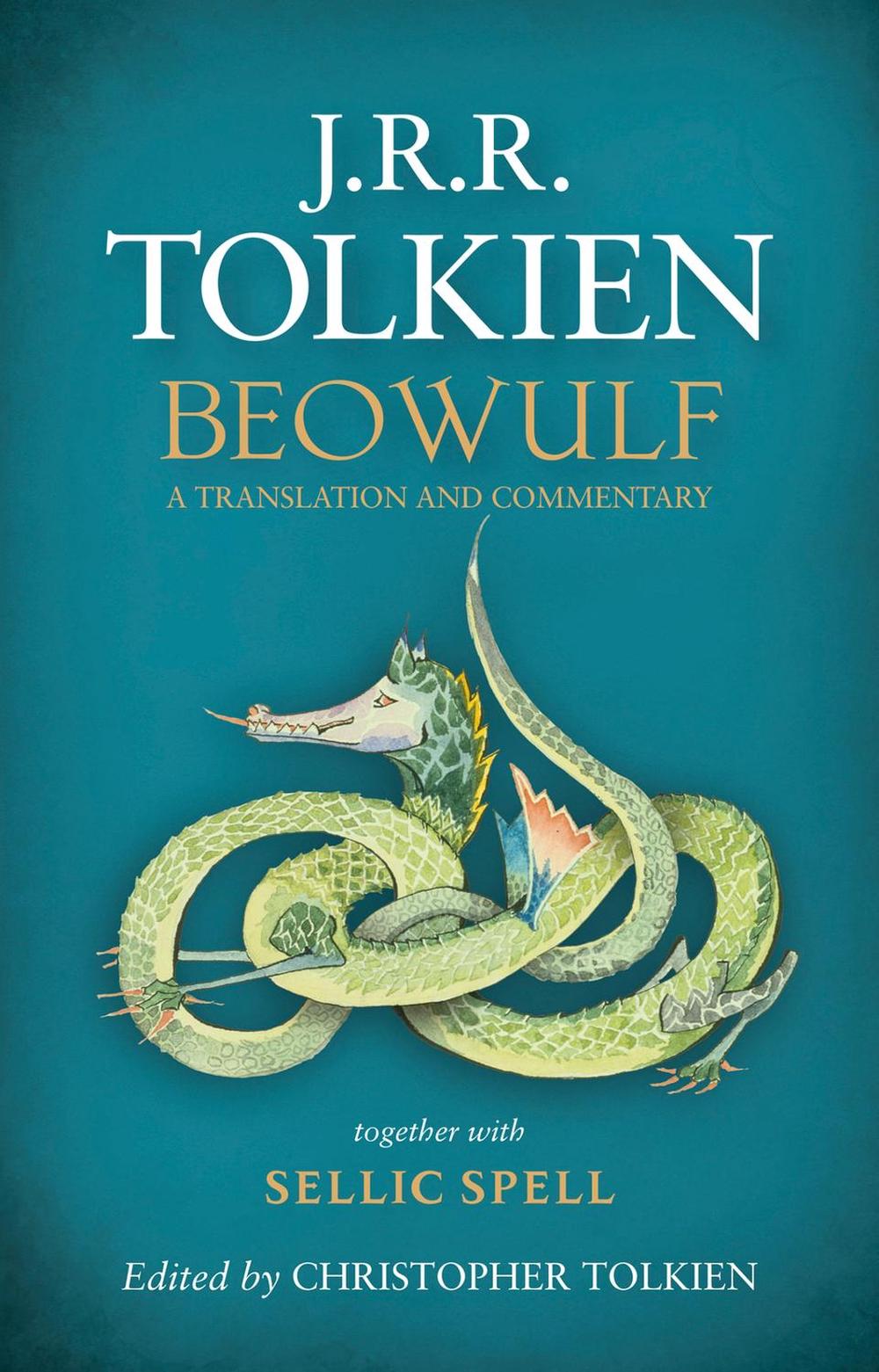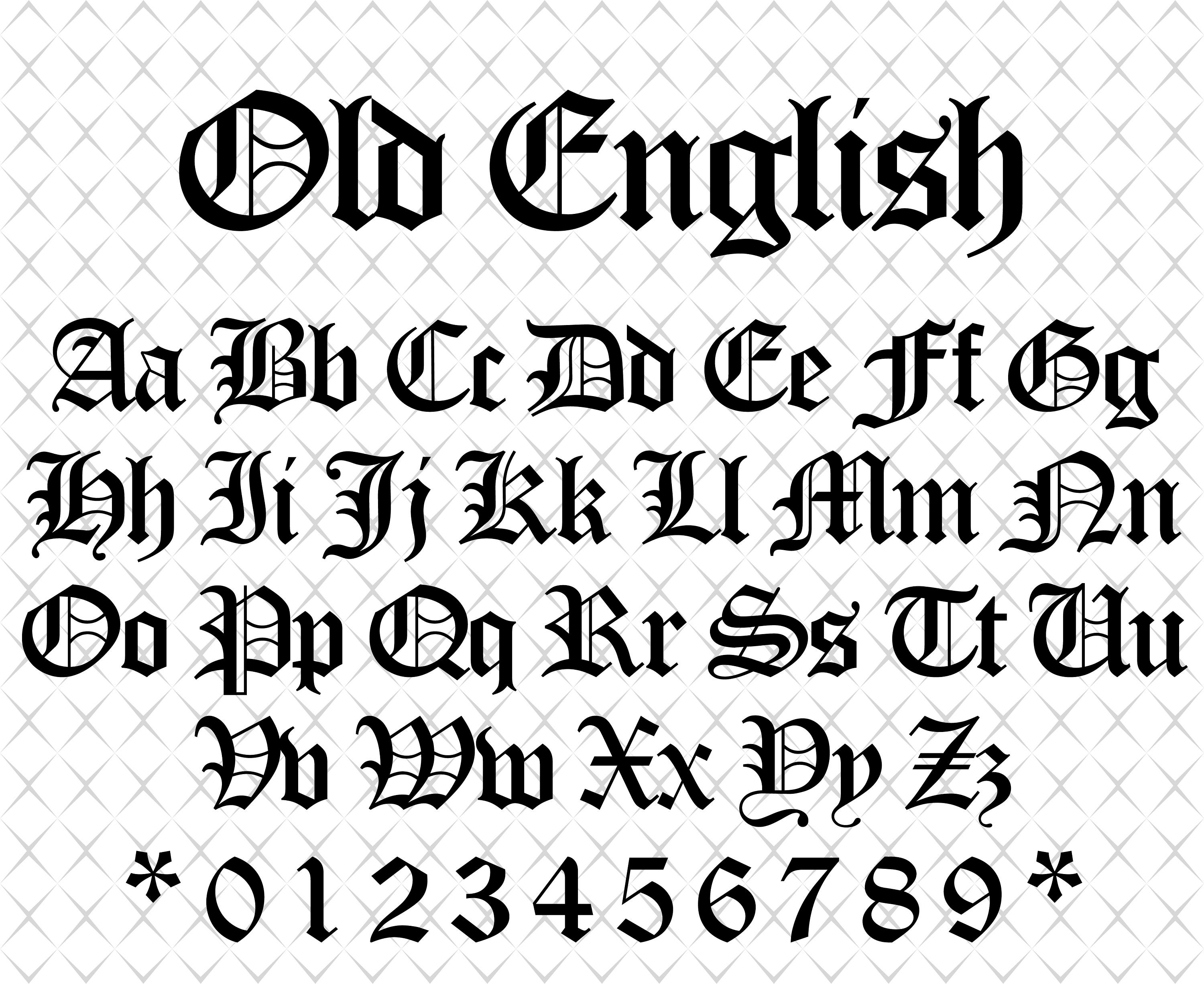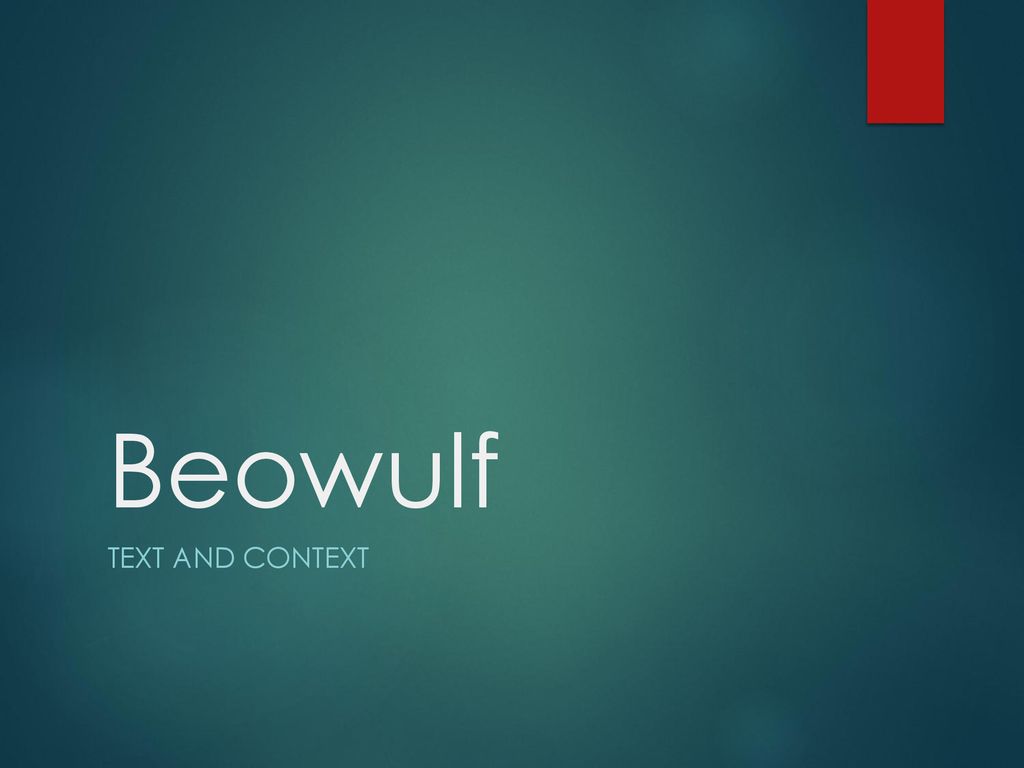Monster
-
Douglas Mercer
- Posts: 10947
- Joined: Tue Mar 28, 2023 7:29 pm
Monster
Douglas Mercer
January 11 2025
A monster is no idle fancy
Tolkien defended the monster against the critics, the critics who said that Beowulf, though full of exalted language, was a slight poem which monomaniacally focused on only one thing. But a monster is nothing to be trifled with, a monster is no idle conceit, a monster is no will o’ the wisp, a monster is no fairy tale of farfetched fable. The Poem itself is a wild folk tale, a bit of legend and myth, and in it we have a picture of the whole of the civilization of the Germania which Tacitus describes. This is a fantasy world of heroes and villains, and mead halls, and oaths, and brotherhood, and daring adventure and undaunted courage, the words and actions of our ancient people under out wonderful Northern Skies. But the intruder which the critics as Evil Stepmothers brought in to superintend the fortunes of this poem was History, the dry chronicles of the recitation of facts and events and her attendant sisters: philology, archaeology, annals, chronicles. But in this tableaux poetry and myth, the namesakes of Art, were cast into oblivion or at best perhaps let in by the servant’s door. The author of Beowulf had an exquisite historical sense, no doubt, and thus the poem made itself into an object for historians to batten on, but this seeming history is only an illusion and is the product of art. But as always anyone seeking after the historical record and seeking after so called facts will be blinded by and be overcome the radiant splendor of Poetry and the immortal tale it always tells.
The allusion by the minstrel to the renowned worm killed by the Waelsing shows us that the Poet knew what he was doing when he chose his Monster, that it was Monster with a magisterial purpose. The poet compares his incomparable hero Beowulf to the great Princes and Heroes of the North Land, the great and noble and august monster slayers from time out of mind. The Poet respected monsters, dire as they are, he respected their power and their force and how they brought out and showed forth what was noble and august in man; yet they must be defeated. But the meaning of myth and poetry cannot be deciphered by the means of reason or by the means of analysis; myth is the primordial and primitive and chthonic force which can only be told in story. In this case the elemental story of the monster.
And he does so by means of fable and so can only hint at what those dark forces, what those monsters, what they truly are; forces which loom and hove and lurk and rise and emerge and that only murder will solve; the myth and mystery of the dark force of evil is seen at its best by a poet who feels rather than makes explicit what is augured by his idea; who presents it living in the world of reality though it retains the mystical shape of fancy and phantasm; no reasoned pinning on a table can elucidate what the poet is attempting; for this is no formal allegory or paint by numbers narrative; for myth and poetry are alive and moving and die when they are dissected.
As for the monster as far as we can glean from time immemorial about the skalds of old they had their king of heroes of the sacred North who were unutterably memorable and what they were were one and one thing only: killers of monsters. And their most pronounced and hallowed and famous and renowned deed, which from our old Norse language, a title derived from the title Fafnisbani—was the slaying of the worm of legend which has two primary features: hunting and killing, and doing both with a singular obsession amounting to megalomania. For the monster is both supremely literal and superlatively figural. Its origins deep in the heart of the earth and in the skies is unfathomable and unknowable; in fact or in myth the monster is a powerful creation of men’s reality and of men’s imagination, more significant by far that any realm of gold. In human terms the monster represents the dwarves and trolls who reside under bridge and who from time to time emerge from their dank and fetid cellars to waylay the traveler on the Path; in cosmic terms the monster knows no bounds.
The myth of the North is one thing: that of an undefeated will. In these Empyrean spaces man is at war with a hostile world but through indomitability he overthrows this challenge to his supremacy and he does so in Time. The scenes, the great scenes are hung with tapestries woven of ancient tales of disasters in the sun, of stars falling and of the eruptions in the earth; of ruin from the backward abysm of time; we see the heroes of heaven walk on the earth like giants, these men of might on the earth, the great earth of the icy Hyperborean Heights, the great earth ringed with fretted gold, a sea shoreless with might burn with fire by the passion of the supreme actor working incessantly under an inaccessible roof through which shafts of life and light pierce in the Mead Halls; men with dauntless courage go forward in never ending battle with the offspring of the dark which ends for all save Kings and Champions. That even this geography, once held as a material fact, could now be classed as a mere folk-tale, only means that the precincts of truth have been pierced. It transcends astronomy. For astronomy has done nothing to make the island secure or the outer seas less formidable; but Beowulf does.
Beowulf is not, then, the hero of a heroic lay, precisely. He has no loyalty other than pure victory, he has no forlorn love. He is a man, and that for him and many is sufficient tragedy. It is the theme in its deadly seriousness that begets the dignity of tone: lif is læne: eal scæceð leoht and lif somod. So deadly and furious and all consuming and flame like and ineluctable is the underlying thought, that those who in the circle of light, within the besieged hall, are absorbed in work or talk and do not look to the battlements, either do not regard it or recoil. It is too much for them these high dramas, these drams of evil, this searing melodrama, this searching legend and tall tale that they more than half believe is but a dream. Death comes to the feast, and the say the Hero is speaking a language they can no comprehend. He has no sense of proportion. He cannot calibrate, he cannot take half measures; he cannot retreat or reconnoiter of live to fight some other day; he cannot be politic, his policy is truth alone. This of course in the peace of the halls is something beyond their reach, beyond their ken, this fatal Northern courage which in itself is the grand inheritance that our forebears bequeathed to us and, if we grasp its nettle, will hold us ever in good stead.
The Northern Gods have an exultant and exorbitant extravagance in their warfare which makes them more like Titans than Olympians; only they are on the right side, though it is not the side that wins, at least to all appearances. The winning side (it seems) is Chaos and Unreason—mythologically, the monsters—but the gods, who are defeated, think that defeat no refutation. Because they know it is not defeat but only the catatonic reverberation of the penultimate battle; and in their war men are their chosen allies, able when heroic to share in this absolute resistance, perfect because without apparent hope. But as the hero pushes through to where even the gods may not go this final vision of defeat becomes a chimera in the distance, for final victory always lies just ahead, and when it appears most distant it is most near. And it is this battle as if on a field of blood, this battle between the hero and the monsters, this incalculable and ineluctable morass of quagmire of war, and its eternal salience, upon the theme of the monsters and men, upon which English and Norse imagination agreed.
The monsters had been the foes of the gods, the captains of men, and within Time the monsters would win. In the heroic siege and last defeat men and gods alike had been imagined in the same host. Now the heroic figures, the men of old, those heroes upon heaven’s heights, with hearts of fiery gold, remained and still fought on until defeat. For the monsters do not depart, whether the gods go or come. But this is the illusion within the illusion, seen though the mists of time. The monsters continue to come but even so the vision of the war changes. For it begins to dissolve, even as the contest on the fields of Time thus takes on its largest aspect. The tragedy of the great temporal defeat remains for a while poignant, but ceases to be finally important. It is no defeat, for the end of the world is part of the design of Metod, the Arbiter who is above the mortal and material world. Beyond there appears a possibility of eternal victory for the real battle is between the soul and its adversaries. This is something older and more elemental, more primitive and primordial still. This is the presage of the hero and his coming into this own, the prologue to all the omens coming on; when in the Event even the gods flee in horror the man, the hero, who can only die on his Death Day, instructs the gods themselves in human courage and so transforms into a master and a god, and what is more a ruler of the gods and a ruler of fate: time’s arbiter and grand decider, full of mind and prowess and strength and insight. For the hero unawares leaps forth on the battlement and his encounter with the final monster is indeed always already inevitable. The hero clears the field of his enemies and with bird song slays the cunning dwarves and awakes the Valkyries for their eternal ride. Now even the spear of Wotan will not bar our way to the ethereal skies.
If these sorrows seem both ancient and poignant they should not. If the funeral of Beowulf moved once like the echo of an ancient dirge, far-off and hopeless, it is to us as a fond memory brought over the distant and ever receding hills, an echo of an echo. There is no poetry in the world like this; among the very greatest poems of our western world and its tradition, it has its own singular character, and a hallowed and peculiar solemnity; it would still have power had it been written in some time or place unknown and without posterity, if it contained no name that could now be recognized or identified by historical or antiquarian research. Yet it is in fact written in our home grown language that after many centuries has still essential kinship with our own, because we hear the whispers in the words, the whispers which call us ever onward; words that were made by us and our kind only, for it was made in this land, and moves in our Northern world beneath our Northern sky; and for those who are native to that tongue and land, it must ever remain familiar, and must forever stir and rouse us with its call and with its profound appeal—until the monster returns, for the monster always returns, the monster returns until one last time—and does so always on a field of black drenched in gules.
***
Notes:
Tolkien said the men of the ancient Saxon world were in despair as they did not have the saving grace of Jesus Christ. Proving once and for all that he was a lunatic who did not have an inkling, and served the monstrous cause.
But the field is forever.
In either case, the unmitigated bloodbath and total destruction is inevitable--Wolf Stoner
January 11 2025
A monster is no idle fancy
Tolkien defended the monster against the critics, the critics who said that Beowulf, though full of exalted language, was a slight poem which monomaniacally focused on only one thing. But a monster is nothing to be trifled with, a monster is no idle conceit, a monster is no will o’ the wisp, a monster is no fairy tale of farfetched fable. The Poem itself is a wild folk tale, a bit of legend and myth, and in it we have a picture of the whole of the civilization of the Germania which Tacitus describes. This is a fantasy world of heroes and villains, and mead halls, and oaths, and brotherhood, and daring adventure and undaunted courage, the words and actions of our ancient people under out wonderful Northern Skies. But the intruder which the critics as Evil Stepmothers brought in to superintend the fortunes of this poem was History, the dry chronicles of the recitation of facts and events and her attendant sisters: philology, archaeology, annals, chronicles. But in this tableaux poetry and myth, the namesakes of Art, were cast into oblivion or at best perhaps let in by the servant’s door. The author of Beowulf had an exquisite historical sense, no doubt, and thus the poem made itself into an object for historians to batten on, but this seeming history is only an illusion and is the product of art. But as always anyone seeking after the historical record and seeking after so called facts will be blinded by and be overcome the radiant splendor of Poetry and the immortal tale it always tells.
The allusion by the minstrel to the renowned worm killed by the Waelsing shows us that the Poet knew what he was doing when he chose his Monster, that it was Monster with a magisterial purpose. The poet compares his incomparable hero Beowulf to the great Princes and Heroes of the North Land, the great and noble and august monster slayers from time out of mind. The Poet respected monsters, dire as they are, he respected their power and their force and how they brought out and showed forth what was noble and august in man; yet they must be defeated. But the meaning of myth and poetry cannot be deciphered by the means of reason or by the means of analysis; myth is the primordial and primitive and chthonic force which can only be told in story. In this case the elemental story of the monster.
And he does so by means of fable and so can only hint at what those dark forces, what those monsters, what they truly are; forces which loom and hove and lurk and rise and emerge and that only murder will solve; the myth and mystery of the dark force of evil is seen at its best by a poet who feels rather than makes explicit what is augured by his idea; who presents it living in the world of reality though it retains the mystical shape of fancy and phantasm; no reasoned pinning on a table can elucidate what the poet is attempting; for this is no formal allegory or paint by numbers narrative; for myth and poetry are alive and moving and die when they are dissected.
As for the monster as far as we can glean from time immemorial about the skalds of old they had their king of heroes of the sacred North who were unutterably memorable and what they were were one and one thing only: killers of monsters. And their most pronounced and hallowed and famous and renowned deed, which from our old Norse language, a title derived from the title Fafnisbani—was the slaying of the worm of legend which has two primary features: hunting and killing, and doing both with a singular obsession amounting to megalomania. For the monster is both supremely literal and superlatively figural. Its origins deep in the heart of the earth and in the skies is unfathomable and unknowable; in fact or in myth the monster is a powerful creation of men’s reality and of men’s imagination, more significant by far that any realm of gold. In human terms the monster represents the dwarves and trolls who reside under bridge and who from time to time emerge from their dank and fetid cellars to waylay the traveler on the Path; in cosmic terms the monster knows no bounds.
The myth of the North is one thing: that of an undefeated will. In these Empyrean spaces man is at war with a hostile world but through indomitability he overthrows this challenge to his supremacy and he does so in Time. The scenes, the great scenes are hung with tapestries woven of ancient tales of disasters in the sun, of stars falling and of the eruptions in the earth; of ruin from the backward abysm of time; we see the heroes of heaven walk on the earth like giants, these men of might on the earth, the great earth of the icy Hyperborean Heights, the great earth ringed with fretted gold, a sea shoreless with might burn with fire by the passion of the supreme actor working incessantly under an inaccessible roof through which shafts of life and light pierce in the Mead Halls; men with dauntless courage go forward in never ending battle with the offspring of the dark which ends for all save Kings and Champions. That even this geography, once held as a material fact, could now be classed as a mere folk-tale, only means that the precincts of truth have been pierced. It transcends astronomy. For astronomy has done nothing to make the island secure or the outer seas less formidable; but Beowulf does.
Beowulf is not, then, the hero of a heroic lay, precisely. He has no loyalty other than pure victory, he has no forlorn love. He is a man, and that for him and many is sufficient tragedy. It is the theme in its deadly seriousness that begets the dignity of tone: lif is læne: eal scæceð leoht and lif somod. So deadly and furious and all consuming and flame like and ineluctable is the underlying thought, that those who in the circle of light, within the besieged hall, are absorbed in work or talk and do not look to the battlements, either do not regard it or recoil. It is too much for them these high dramas, these drams of evil, this searing melodrama, this searching legend and tall tale that they more than half believe is but a dream. Death comes to the feast, and the say the Hero is speaking a language they can no comprehend. He has no sense of proportion. He cannot calibrate, he cannot take half measures; he cannot retreat or reconnoiter of live to fight some other day; he cannot be politic, his policy is truth alone. This of course in the peace of the halls is something beyond their reach, beyond their ken, this fatal Northern courage which in itself is the grand inheritance that our forebears bequeathed to us and, if we grasp its nettle, will hold us ever in good stead.
The Northern Gods have an exultant and exorbitant extravagance in their warfare which makes them more like Titans than Olympians; only they are on the right side, though it is not the side that wins, at least to all appearances. The winning side (it seems) is Chaos and Unreason—mythologically, the monsters—but the gods, who are defeated, think that defeat no refutation. Because they know it is not defeat but only the catatonic reverberation of the penultimate battle; and in their war men are their chosen allies, able when heroic to share in this absolute resistance, perfect because without apparent hope. But as the hero pushes through to where even the gods may not go this final vision of defeat becomes a chimera in the distance, for final victory always lies just ahead, and when it appears most distant it is most near. And it is this battle as if on a field of blood, this battle between the hero and the monsters, this incalculable and ineluctable morass of quagmire of war, and its eternal salience, upon the theme of the monsters and men, upon which English and Norse imagination agreed.
The monsters had been the foes of the gods, the captains of men, and within Time the monsters would win. In the heroic siege and last defeat men and gods alike had been imagined in the same host. Now the heroic figures, the men of old, those heroes upon heaven’s heights, with hearts of fiery gold, remained and still fought on until defeat. For the monsters do not depart, whether the gods go or come. But this is the illusion within the illusion, seen though the mists of time. The monsters continue to come but even so the vision of the war changes. For it begins to dissolve, even as the contest on the fields of Time thus takes on its largest aspect. The tragedy of the great temporal defeat remains for a while poignant, but ceases to be finally important. It is no defeat, for the end of the world is part of the design of Metod, the Arbiter who is above the mortal and material world. Beyond there appears a possibility of eternal victory for the real battle is between the soul and its adversaries. This is something older and more elemental, more primitive and primordial still. This is the presage of the hero and his coming into this own, the prologue to all the omens coming on; when in the Event even the gods flee in horror the man, the hero, who can only die on his Death Day, instructs the gods themselves in human courage and so transforms into a master and a god, and what is more a ruler of the gods and a ruler of fate: time’s arbiter and grand decider, full of mind and prowess and strength and insight. For the hero unawares leaps forth on the battlement and his encounter with the final monster is indeed always already inevitable. The hero clears the field of his enemies and with bird song slays the cunning dwarves and awakes the Valkyries for their eternal ride. Now even the spear of Wotan will not bar our way to the ethereal skies.
If these sorrows seem both ancient and poignant they should not. If the funeral of Beowulf moved once like the echo of an ancient dirge, far-off and hopeless, it is to us as a fond memory brought over the distant and ever receding hills, an echo of an echo. There is no poetry in the world like this; among the very greatest poems of our western world and its tradition, it has its own singular character, and a hallowed and peculiar solemnity; it would still have power had it been written in some time or place unknown and without posterity, if it contained no name that could now be recognized or identified by historical or antiquarian research. Yet it is in fact written in our home grown language that after many centuries has still essential kinship with our own, because we hear the whispers in the words, the whispers which call us ever onward; words that were made by us and our kind only, for it was made in this land, and moves in our Northern world beneath our Northern sky; and for those who are native to that tongue and land, it must ever remain familiar, and must forever stir and rouse us with its call and with its profound appeal—until the monster returns, for the monster always returns, the monster returns until one last time—and does so always on a field of black drenched in gules.
***
Notes:
Tolkien said the men of the ancient Saxon world were in despair as they did not have the saving grace of Jesus Christ. Proving once and for all that he was a lunatic who did not have an inkling, and served the monstrous cause.
But the field is forever.
In either case, the unmitigated bloodbath and total destruction is inevitable--Wolf Stoner

